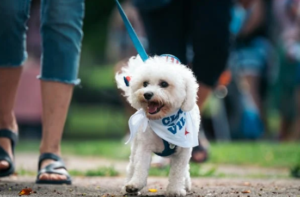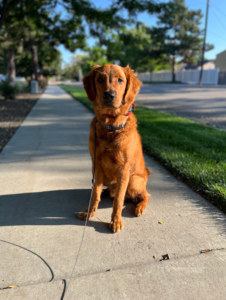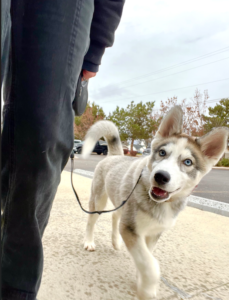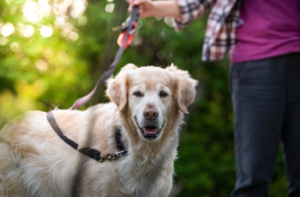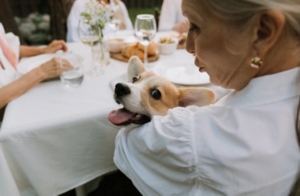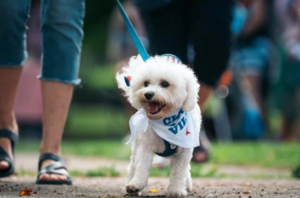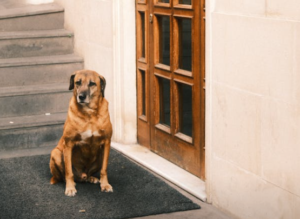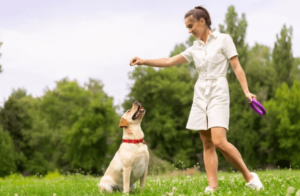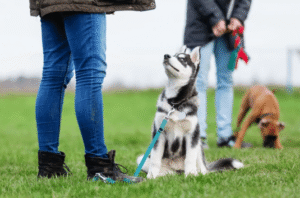Fix Common Behavior Problems with Boise Dog Training Services
If you’re looking for Boise dog training services, you’re not alone. In fact, many local dog owners experience challenges like barking, leash pulling, jumping, or anxiety. Fortunately, these issues are common and, more importantly, they are highly trainable. With the right approach, dogs can learn better behaviors quickly and clearly.
At All Dogs Unleashed Boise, we focus on structured, professional training. As a result, dogs learn faster and owners feel more confident. Most importantly, training is done without stress or confusion, which helps behaviors stick long term.
Most Common Issues Solved by Boise Dog Training
Behavior problems often start small; however, without guidance, they can escalate quickly. That’s why early training is so important. Below are the most common behavior concerns we help Boise dog owners overcome every day.
1. Leash Pulling and How Dog Training in Boise Helps
Your dog should walk with you, not pull ahead. For that reason, leash manners must be taught intentionally. To begin with, calm focus and proper handling make a big difference. In addition, consistent repetition in real-world settings reinforces success. For example, this leash handling guide from ASPCAPro offers helpful insight.
2. Jumping: What Boise Dog Training Services Can Teach
Dogs often jump because they’re excited. However, excitement without structure leads to bad habits. Therefore, teaching polite greetings early prevents frustration later. As a result, both dogs and guests feel more comfortable.
3. Barking and the Role of Dog Training Boise
Barking can come from boredom, alert behavior, or anxiety. Because of this, identifying the trigger is essential. Once the cause is clear, training can redirect the behavior. Consequently, dogs learn calmer ways to communicate.
4. Anxiety & Reactivity: Why You Need Boise Dog Training Support
Some dogs struggle in busy environments. In these situations, gradual exposure is key. Over time, structured training builds confidence. As a result, dogs become calmer and more predictable in public.
5. Poor Obedience: Fix It with Dog Behavior Training in Boise
Inconsistent obedience is frustrating. Often, it happens because communication is unclear. That’s why consistent cues and structure matter. Ultimately, dogs respond better when expectations are clear.
Why Boise Dog Training Services Actually Work
Dogs thrive on structure. Therefore, professional training uses clear cues, proper timing, and consistency. In turn, dogs understand what’s expected of them. As a result, behaviors improve faster and last longer.
Our Boise dog training services are designed for real life. For example, training works on busy sidewalks, at parks, and inside your home. Because of this, dogs listen no matter the environment.
Whether you’re starting with a Puppy Training program or addressing behavior issues in an adult dog, the approach is customized. In addition, training is built around your lifestyle and goals.
In short, our training:
-
Builds confidence instead of fear
-
Uses rewards and repetition consistently
-
Transfers skills directly to owners
-
Works in real Boise environments
How You Can Support the Training
Owner involvement is essential. For that reason, consistency at home matters just as much as professional training. To help your dog succeed, daily reinforcement is key.
For example, use the same commands every time. In addition, practice regularly, even if sessions are short. Most importantly, reward good behavior immediately. Otherwise, dogs may become confused.
As you can see, when expectations are clear, dogs respond better. Over time, consistent follow-through creates lasting results.
When to Get Help from a Boise Dog Trainer
If your dog’s behavior is causing stress, embarrassment, or safety issues—it’s time to call in expert help. Early intervention prevents bad habits from becoming permanent.
Our Board & Train program is a fast-track to success. Your dog learns with us in a structured environment, then transitions that behavior home with your support.
Have questions? Contact Us today to speak with a local trainer and see which plan fits your dog best.
Real Results for Boise Dog Owners
We’ve helped hundreds of Treasure Valley families fix frustrating behaviors and build better bonds with their dogs. Whether you’re walking in Camel’s Back Park or hosting guests at home, we make sure your dog is ready for real life.
Ready to see real results? Board & Train and get your dog on the path to success.
Frequently Asked Questions
Q: What causes most dog behavior problems?
A: Most issues come from unclear communication, lack of structure, fear, or under-stimulation.
Q: Is it too late to train my adult dog?
A: Never! Dogs of any age can learn when training is consistent and positive.
Q: How long does it take to fix behavioral issues?
A: Minor habits improve within weeks. Complex issues may take longer—but results come with consistency.
Q: Will professional training work if I’ve already tried on my own?
A: Yes. Professional trainers bring experience, structure, and proven techniques that often succeed where DIY efforts stall.



